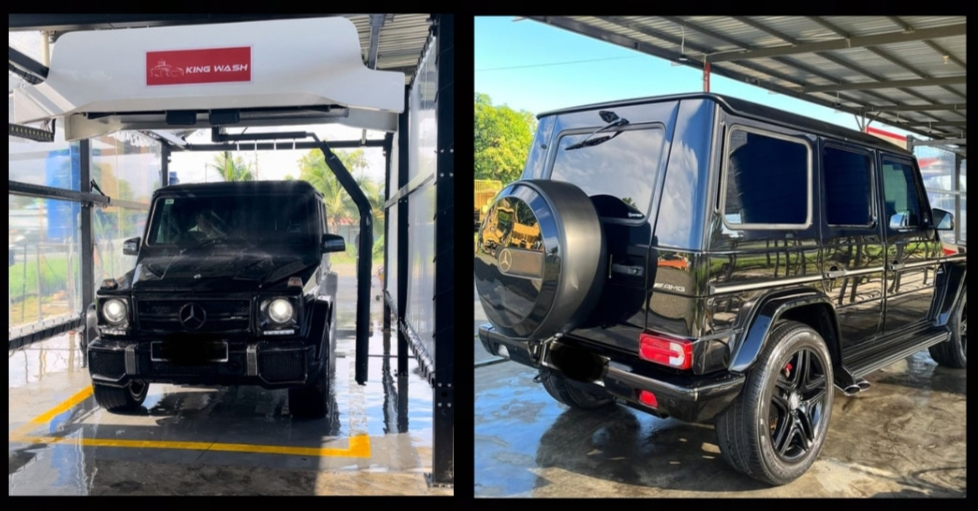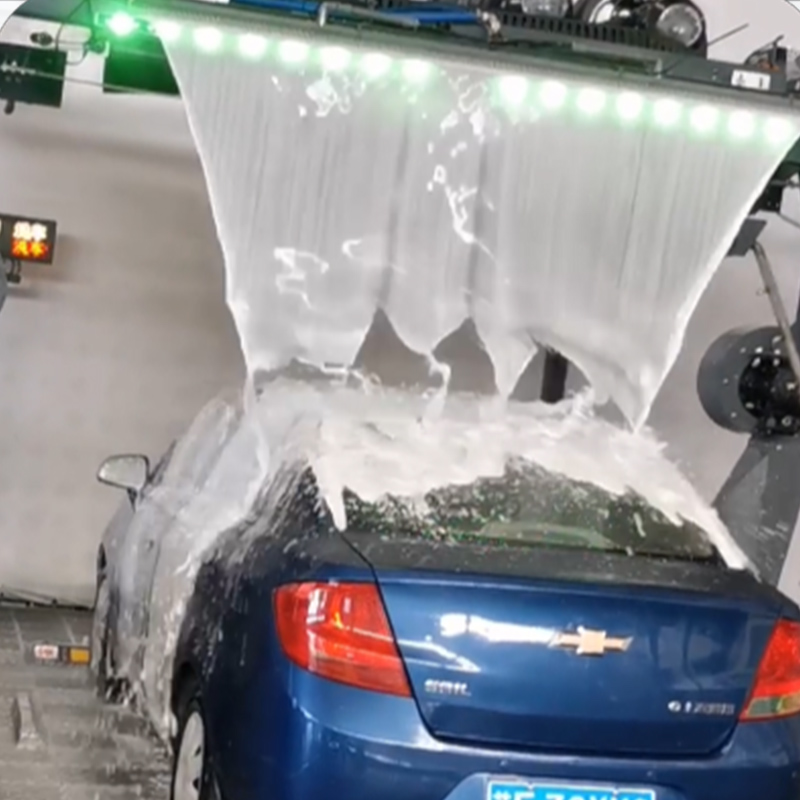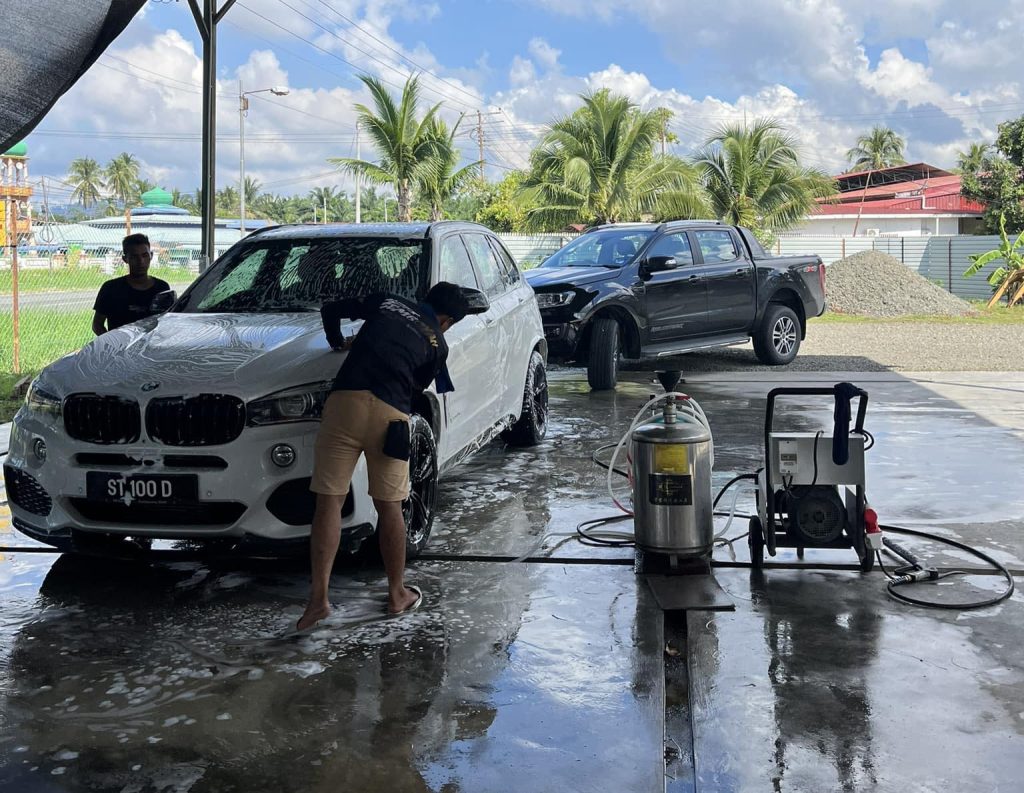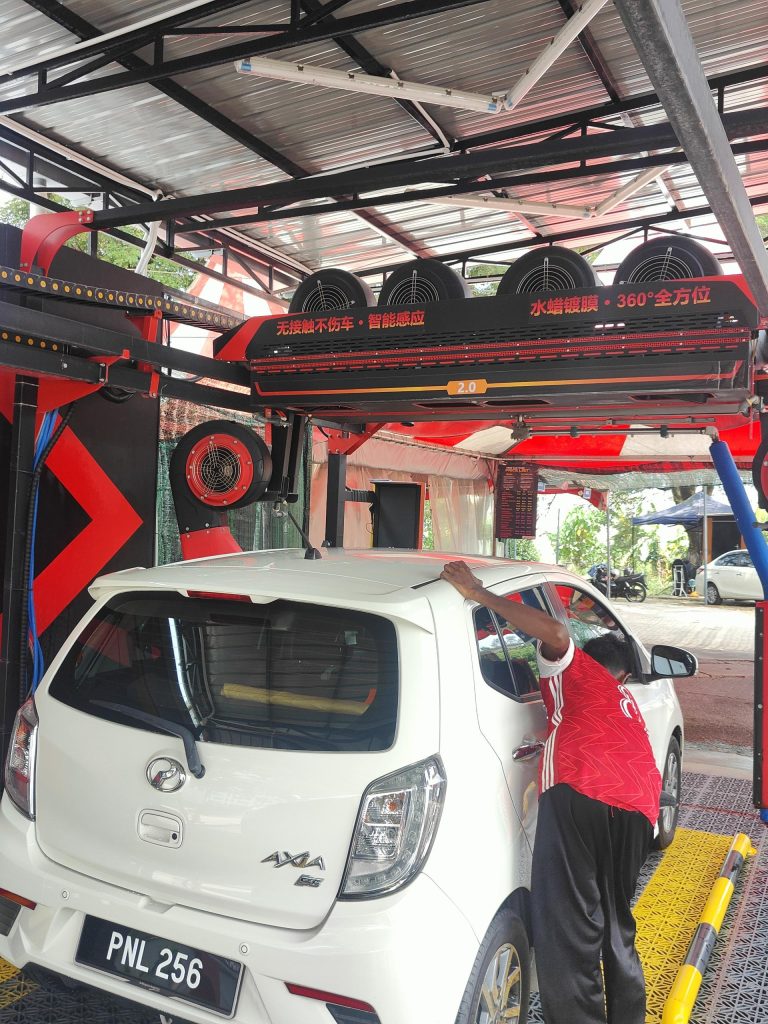If you want to build a successful car wash business, should you invest in an automatic car wash or focus on auto detailing services? One effective approach to making this decision is to compare both business models. This will help you understand which option aligns better with your initial investment capabilities while also providing insight into potential revenue streams.

Automatic Car Wash vs Auto Detailing Business
Differences and Similarities between an Automatic Car Wash and an Auto Detailing Business
The primary similarity between these businesses is that they both provide exterior vehicle cleaning services. However, the cleaning processes differ significantly. An automatic car wash utilizes a mechanized system where either brushes or high-pressure water jets clean vehicles as they move through a tunnel or bay. For example, a touchless automatic system uses pressurized water and specialized detergents to remove dirt without physical contact with the vehicle.
In contrast, auto detailing relies on manual labor, with professional detailers using hand-held tools to achieve superior results. Additionally, auto detailing businesses typically offer a comprehensive range of services beyond basic washing, including interior cleaning, waxing, polishing, and paint protection. This broader service offering can significantly enhance your business’s profitability.

Initial Investment Requirements for Automatic Car Wash vs Auto Detailing
Both business models require a physical location, necessitating either property purchase or leasing. Your real estate costs will depend on size, configuration, and geographic location. Ideal sites for either business type are positioned in high-traffic areas or near retail centers and restaurants. While premium locations increase real estate expenses, they also attract more customers, which is essential for building a profitable operation.
Setting up an automatic car wash facility can require an initial investment ranging from $700,000 to over $2 million, depending on the technology and size. This includes land acquisition, construction costs, and equipment purchase. Be sure to thoroughly research equipment suppliers to secure the best value for your automatic washing technology.
The startup costs for an auto detailing shop will also cover premises and essential equipment such as pressure washers, professional vacuums, polishers, and specialized cleaning tools. Expect to invest between $75,000 and $300,000 to establish a comprehensive auto detailing operation. However, there is a more affordable option – Self-Service. If you decide to open a do-it-yourself auto detailing shop, you can eliminate labour costs, which will significantly reduce your initial financial investment. For example, Mattias M-F761AX Self Service car washes start at US$3,500, low cost, cost-effective, 24-hour flexibility, site adaptability, modular design occupies an area of only 6-8 m², and can be flexibly laid out in petrol stations, car parks, communities, and other scenarios!

Operational and Maintenance Expenses
Staffing Costs
An automatic car wash operates primarily through machinery, requiring minimal staffing. You’ll typically need at least one person to supervise operations and handle customer payments. Investing in automated payment systems can further reduce labor costs, though this increases initial setup expenses. However, efficient payment processing should improve your automatic car wash’s profitability.
A successful auto detailing business depends heavily on skilled detailers. Their wages constitute a significant operational expense. Nevertheless, investing in talented staff is worthwhile, as their expertise will enhance your business reputation and drive customer loyalty, ultimately increasing revenue.
Utility Expenses
Electricity is the main ongoing cost of an automatic car wash. Electricity is needed to operate the car wash equipment and to wash, rinse, and dry the water multiple times throughout the day. Water consumption is also high, resulting in higher utility bills.
Auto detailing businesses typically have lower energy needs because they do not rely on automatic tunnel car wash systems. Manual auto detailing services and self-service car washes can reduce building-related costs, reducing overheads. These cost differences help explain why manual auto detailing services and self-service car washes typically earn higher profit margins per unit than fixed-location automated car washes.
Equipment Considerations
The automatic car wash industry is highly competitive, requiring investment in sophisticated equipment to meet customer expectations. Modern consumers demand multiple wash options and cutting-edge technology customized to their preferences. A high-quality automatic system can cost $80,000-$150,000. However, advanced equipment improves both efficiency and throughput, enabling you to service more vehicles hourly. An automatic car wash’s profitability largely depends on high-volume processing.
Equipment for auto detailing ranges from basic supplies like microfiber towels, brushes, and cleaning solutions to advanced tools such as pressure washers and steam cleaners. Your equipment choices will determine your initial and ongoing costs. Professional-grade pressure washers range from $400 to $2,500, while commercial steam cleaning systems cost approximately $1,000. Auto detailing shops may require more specialized equipment, including rotary buffers and paint correction tools, which represent additional investment.
Permits and Regulatory Requirements
Both business types must navigate similar legal procedures regarding permits and licenses. Your checklist should include building permits (except for mobile operations), zoning compliance, and business licensing. The Small Business Administration (SBA) can provide guidance on applicable taxes, regulations, and government fees, which vary by location.

Enhancing Profitability in Both Business Models
An automatic car wash can increase revenue by incorporating supplementary services like interior cleaning or express detailing. However, this requires additional space and personnel. Strategic location is also crucial—placing your car wash near a gas station or including a convenience store can create multiple revenue streams from the same customer base.
The lower startup costs of an auto detailing business represent an advantage for bottom-line performance, offering faster return on investment. You can also maximize profits through premium interior cleaning packages that command higher prices. For instance, specialized sanitization services have gained popularity, with customers willing to pay premium rates for thorough disinfection of vehicle interiors.
Auto detailing operations can also boost profitability by emphasizing eco-friendly practices, such as water-conserving steam technology. Environmentally conscious consumers often prefer and will pay more for green services, creating a competitive advantage over traditional automatic car washes that consume significantly more water.
Conclusion
Automatic car washes require substantial initial investment but offer higher capacity, potentially washing hundreds of vehicles daily with minimal labor costs. With sufficient customer volume, you can expect full investment recovery within 7-10 years.
Auto detailing businesses may process fewer vehicles hourly but benefit from business model flexibility. This adaptability is increasingly valuable as customers seek convenience and specialized services like vehicle sanitization. Incorporating mobile detailing options and premium add-on services can provide significant advantages over automatic operations and help maximize profitability.
If you’re interested in entering the car wash industry without making a massive initial investment, consider exploring auto detailing business opportunities that offer flexibility and growth potential. Many successful operators begin with detailing services and gradually expand their offerings as they build capital and customer bases.
For more information about starting and growing a car wash or detailing business, subscribe to our industry newsletter for regular updates, business strategies, and market insights.



